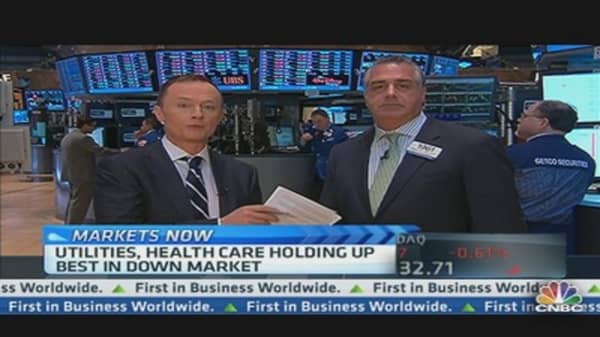Despite its own significant problems, the U.S. has managed to hold one claim through a time of heightened global crisis: It's not as bad as a lot of other places.
That position as much as anything has helped put a bid in the domestic stock market, which has roared to strong gains in 2013 thanks in large part to money flowing out of other countries and back to the U.S.
"It's the asset class of last resort," said Art Hogan, managing director at Lazard Capital Markets in New York. "You've got slow and stable economic growth as a backdrop. You've got aggressive monetary policy and you've got a corporate America that's mean, lean and delevered and multiples that are reasonable."
The result has been a gain approaching 9.5 percent for the Standard & Poor's 500 and nearly 11 percent for the Dow Jones Industrial Average.
Positive moves have been harder to come by for global markets, and with the European debt crisis flaring up again, the incentive gets greater for money to make its way to American shores.
(Read More: Bulls Revved Up to Take Out Next Milestone for Stocks)
For the year to date, the average global stock-based fund is up just 2.8 percent while the average U.S. equity fund has gained 8.6 percent, according to TrimTabs. Money invested in global funds has fallen sharply, with U.S. equity mutual and exchange-traded funds taking in $19.4 billion in March compared with just $7.8 billion for global funds.
There have been some exceptions, most notably Japan, which has taken in a record $5 billion in fresh ETF money this year as its stock market has zoomed thanks to central bank easing. But that has been offset by flows out of Chinese and European funds and a feeling that the tumult is being least felt in the U.S.





